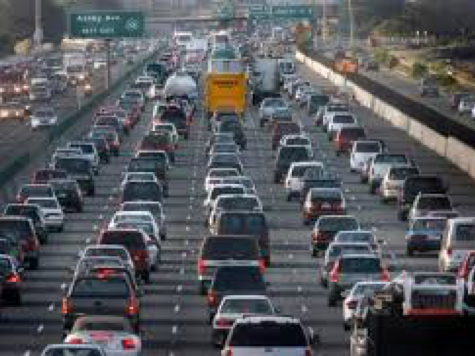
The average driver spends two hours in the car each day commuting to and from work, school and other destinations. source. Average where? I can believe that the average American family spends two hours per day delivering adults and children to school and work. Is it commuting to go to other destinations than work? No; the verb means to go to/from work.
Following on from 213 on email issues I write here about usable time. What prompted this was reading about the progress to autonomous cars, cars that drive themselves a lot of the time. This should change a car drive into an experience more akin to sitting in the most expensive seats on a train; quiet, peaceful, radio or music on tap and as the mood takes you, the ability to work (or reflect on the day ahead) – time that you can choose to use or not use1.
How much time do we spend commuting? Research in 2015 by the TUC reported in the Guardian says it is rising. The number of [UK] people commuting for more than three hours per day has risen from 500,000 in 2005 to 880,000 in 2015. Average commute has risen from 2004 52 mins to 2015 55 mins. The average EU commute is 37.5 mins per day [independent]. The Mail says 98 minutes. As ever, we have numbers that conflict2.
The TUC report3 points to ONS data (a wonderful resource). There is a regular output of ‘average home to work travel time’, which rapidly yields data that disagrees, with a maximum declared average of 48 minutes (in Haringey). Which does not mean that either is wrong, but does say that there is a very large number of people who spend a lot less than two hours on the daily commute. ONS figures for Oct 2016 say 23.2 million people work full-time, 8.56 million part-time, 1.62 million unemployed (4.8%, a low), and tell you the labour force is 33.38 million4.
Of course, despite essay 213, we know what is going to happen when we have driverless cars. Even more time will be spent mindlessly prodding at the mobile, pointless comments on social media, each of us kidding ourselves that this is essential, pointful productive activity. Unless you are already some sort of famous person upon whom a following rely and their livelihoods depend upon you providing output, no it isn’t. Really.
DJS 20170106
top pic on googling ‘commuting’; https://ricardobarroselt.files.wordpress.com/2016/10/commute.jpg
1 Autonomous car stages, with Nissan (California) predictions
1 autonomous drive on single lanes
2 autonomous drive for multilane highway driving with lane changes (2018)
3 is autonomous city driving (around 2020)
4 completely autonomous driving
2 OnePoll asked 600 commuters (rail commuters?). I found the OnePoll website very clumsy. Searching for ‘commuting’ told me about trips into space, searching on ‘travel time’ gave me that and loads of studies with no relevance to commuting (nor to time spent travelling). I did not find the report on which the reporting was based.
3 TUC report data based on surveys in 2004 and 2014
Daily commute up from 52.5 to 56.3 minutes (7% rise)
2 hours or more from 1.740 to 2.995 million people (72% rise)
3 hours or more from 502 to 880 thousand people (75% rise)
4 Suppose the work force is 30 million, that daily travel times include 2 million for 2 hours, 1 million for 3 hours and that the average travel time is 40 minutes. What then is the average travel time for those who travel less than two hours? I get 27 minutes. If 3 million work at home, then the majority group mean goes over 30 minutes.
If this was a normal distribution with the median at 1 we’d have 20% outside [0+,2]; so 45% travel an hour or more, 40% between 1 and 2 hours; 45% an hour or less including 10% at zero time.
I will continue to look for evidence describing the distribution. This may turn into a page of maths elsewhere on the site.